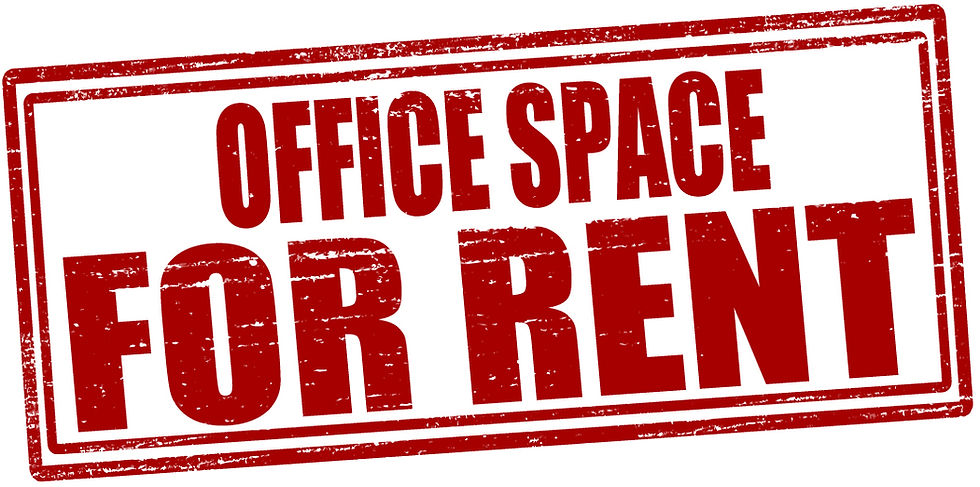Commercial Space Available
- Your Ops Guy

- Jan 25, 2021
- 3 min read

Part II...Workplace. By now, it is very possible you hadn't been to your office in a full year. My wife, for example, gave birth to our daughter in December of 2019 and subsequently went on a 3 month maternity leave. Well...the end of the 3 months is when all of the chaos ensued and shutdowns began. Today is January 15th, 2021...and she has been to the office one time since the birth of my daughter...and that was only to get her computer monitors to work more efficiently from home. So what is happening to the high-rent, high-maintenance, highly-sought after workspaces? In this piece, we break down the adjustments that office based businesses were forced to undertake as part of this transition.
A workspace was always a means of productivity and identity for a business. It is a place to call its own, assemble employees to do the necessary jobs to grow the business, receive in bound shipments, a meeting place of clients and vendors. But similar to the streets of Chernobyl, they are mostly deserted and underused. The empty cubicles, vacant offices, and echoed hallways all come at a cost, however. A cost that hits these businesses even harder at the bottom line. The events of the 2020 year has shed significant light on the actual true value an office setting has in todays business world.
The businesses that were able to quickly adapt to secure cloud based servers, remote integration, digital meetings, etc. were the ones who took to this forced situation better than others. Their infrastructure was established to literally eliminate the bricks & steel from the equation, and focus on the jobs getting accomplished. There are clearly exceptions. Many (if not most) businesses cannot make this adjustment due to the nature of their industry. A car dealer cannot send 10 cars home with their salesmen to sell out of their home. A restaurant cannot move operations out of a home kitchen. This article is meant for the office buildings and office workers.
So what happens to these office spaces now that these companies have figured out that they can be equally (if not more) productive without the cost of maintaining a physical location? That is a great question! A question that is yet to be fully understood. Many of these offices have lengthy leases or mortgage commitments that cannot be ignored. Their options are to either sublease...to whom, we have no idea...or take the loss against future income. For those that were month-to-month, or simply own the properties outright, many firms are selling the valuable land to developers for demolition and rezoning efforts. Either way, the path is clear...the future of commercial real estate is in serious jeopardy.
Let's not confuse the topic of discussion here...this article is not intended to scare the hell out of commercial property owners, leasers, or realtors...particularly over a virus. The intention is to shed light on the facts that businesses can eliminate a huge expense item on their balance sheets by simply moving on to a digital base. Is there still a need for a physical setting? I want to be clear...YES! My argument is in the decline of the high demand we have seen in the very recent past.
So how does this intertwine with the workers section? Well, think costs. When a worker shows up at his/her cubicle or office, most times they are not responsible for paying utilities, taxes, etc. on that office space. At home they are responsible. So I ask these businesses...if this forced remote integration has saved tremendous amount of expenses, should those savings be passed on to the workers for offsetting their incurred expenses of higher utilities, the need for faster internet? I guess the same could be said the other way around...are workers responsible for offsetting their savings on gas, vehicle maintenance, office apparel? I guess the point is...it is a "hand-shake & a beer" arrangement. The new digital landscape benefits both parties involved.
So what's the conclusion? Is there a future for in-person business settings? Will things eventually rebound and be back to our idea of a pre-2020 normal? These, and many other, questions are yet to be answered. Here's what we did learn, however...the businesses that were able to pivot with this crisis are the ones that will be around to make those decisions. Adaptation and evolution are fundamental to the growth of any species...including a business.

















